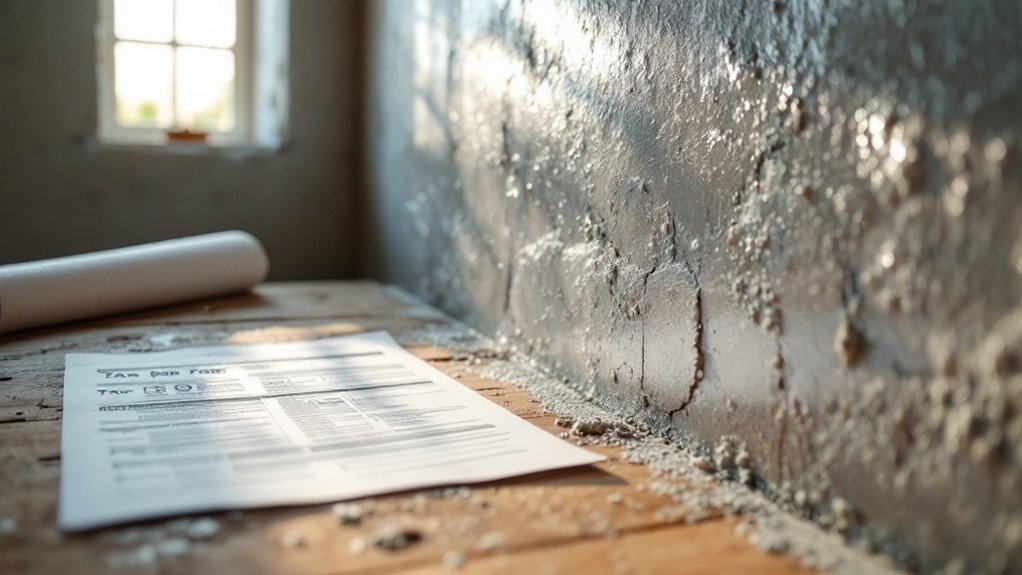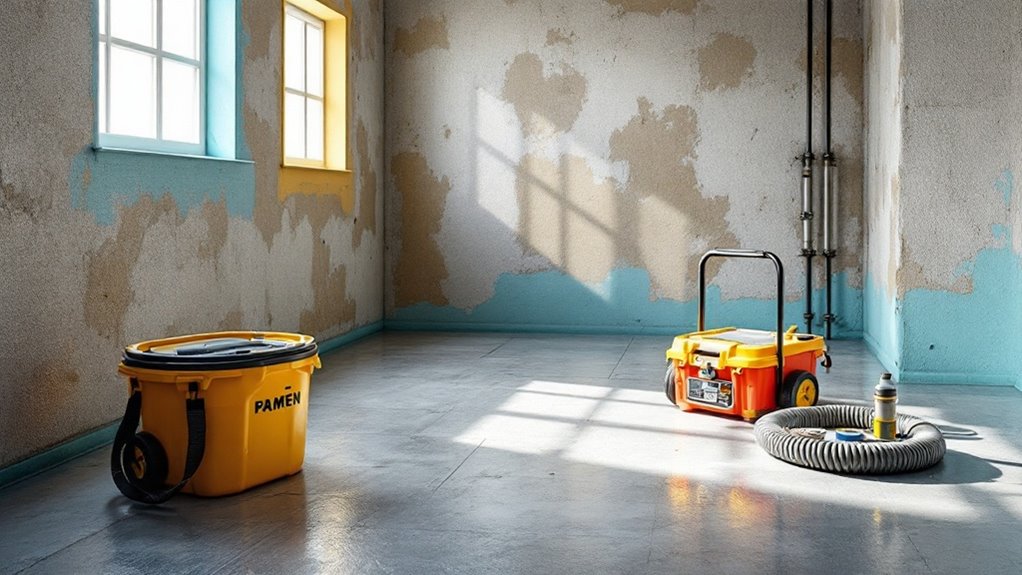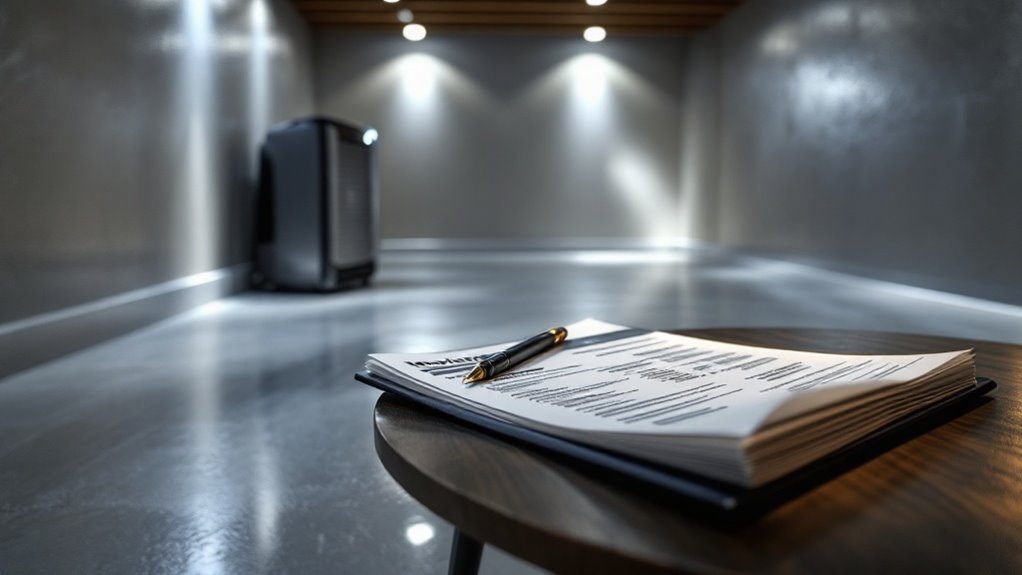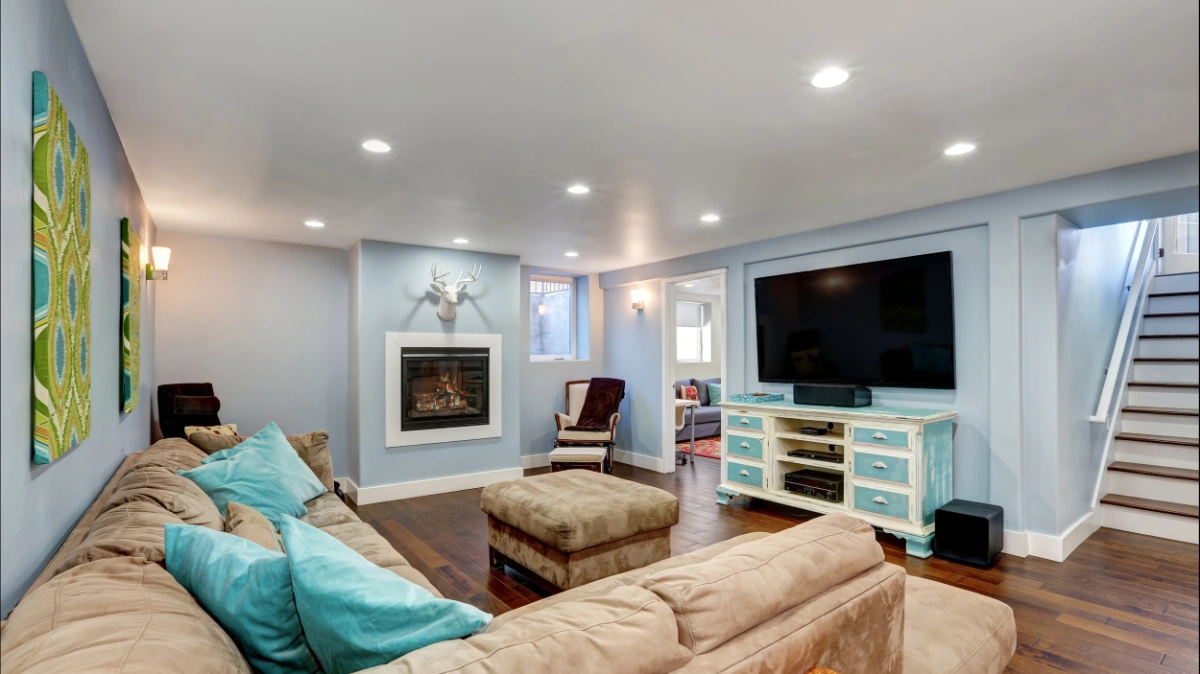Basement waterproofing isn’t generally tax-deductible since it’s often viewed as a repair. However, if it’s prescribed by a doctor for health reasons, it may qualify as a medical expense.
Upgrades that improve energy efficiency could also earn you tax credits. For rental properties, waterproofing costs classified as repairs can be deducted if incurred while the property is rented.
Understanding the specifics can maximize your benefits, and there’s more to explore on this topic.
Key Takeaways
- Basement waterproofing costs are generally non-deductible if classified as repairs that do not enhance home value.
- Waterproofing that improves home value may qualify as a capital improvement and must be capitalized over time.
- Medical adaptations for waterproofing, if prescribed by a doctor, may qualify for medical expense deductions.
- Waterproofing expenses for rental properties can be deductible if classified as repairs, maintaining functionality without enhancing value.
- Energy-efficient upgrades during waterproofing, like replacing windows, may be eligible for IRS tax credits and should meet Energy Star standards.
General Tax Treatment

When considering basement waterproofing, it’s important to understand its general tax treatment, as not all expenses are created equal.
Typically, costs incurred to fix leaks are classified as repairs, rendering them non-deductible. However, if waterproofing considerably enhances your home’s value, it may qualify as a capital improvement, impacting your tax basis instead.
Certain energy-efficient features can earn tax credits, while floodproofing might be deductible under specific IRS guidelines.
Remember, if waterproofing is necessary for medical adaptations, it could also qualify for medical expense deductions. Additionally, investing in professional waterproofing systems ensures long-term effectiveness and can further justify your capital improvement claim.
Understanding these classifications helps you navigate potential tax benefits effectively.
Tax-Deductible Scenarios

Understanding the specific scenarios where basement waterproofing expenses may be tax-deductible can greatly enhance your financial strategy.
If waterproofing is recommended by a doctor due to medical needs, you might qualify for deductions by saving professional recommendations and filing IRS Form 8826.
For home offices, if you use the space regularly and exclusively for business, you can itemize waterproofing costs related to that area.
Additionally, flood barriers and energy-efficient upgrades may be deductible under specific tax codes.
Always document expenses carefully to guarantee compliance with IRS requirements and maximize your potential deductions.
Rental Property Deductions

While managing rental properties, it’s crucial to recognize which expenses are tax-deductible, particularly concerning maintenance efforts like basement waterproofing.
If waterproofing qualifies as a repair rather than an improvement, you can deduct the costs incurred while the property is rented. Repairs must aim to maintain function, not enhance value.
Remember, these deductions apply immediately in the year incurred, while improvements are capitalized over time.
Maintain thorough documentation, including receipts and invoices, to support your claims.
Ultimately, understanding these distinctions guarantees you maximize your potential deductions while complying with tax regulations.
Energy Efficiency Upgrades
Incorporating energy efficiency upgrades into your home can greatly enhance both its value and your financial savings.
When you replace windows during waterproofing projects, you may qualify for IRS tax credits. Combining these upgrades with waterproofing maximizes your tax benefits, as credits apply to specific energy-related costs like materials and labor.
Remember, these credits reduce your taxable income, offering more substantial savings. To qualify, verify your windows meet Energy Star certification standards and that the upgrades are installed in your primary residence.
Keep in mind that credits are subject to annual limits and must adhere to IRS guidelines.
Medical Expense Deductions
If a medical condition necessitates changes to your home, basement waterproofing may qualify as a deductible medical expense.
To qualify, a licensed healthcare provider must prescribe the waterproofing due to health concerns, such as mold allergies.
Keep in mind that only expenses exceeding 7.5% of your adjusted gross income can be deducted.
You’ll need to document the medical necessity, retain invoices, and demonstrate that the waterproofing directly addresses health issues, not just routine maintenance.
For accurate claims, use Form 1040 Schedule A and consider consulting a tax professional to navigate these complex IRS guidelines effectively.
Getting to the bottom of tax deductions for waterproofing your own basement!
In the grand tapestry of homeownership, each thread represents a choice we make, from repairs to renovations. Just like a skilled weaver, you can navigate the intricate patterns of tax deductions.
While basement waterproofing might not always be a clear path to savings, it can contribute to the overall strength of your investment.
By understanding the nuances of tax treatment, you empower yourself to make informed decisions that protect your home—and your finances—against the storms of uncertainty.




